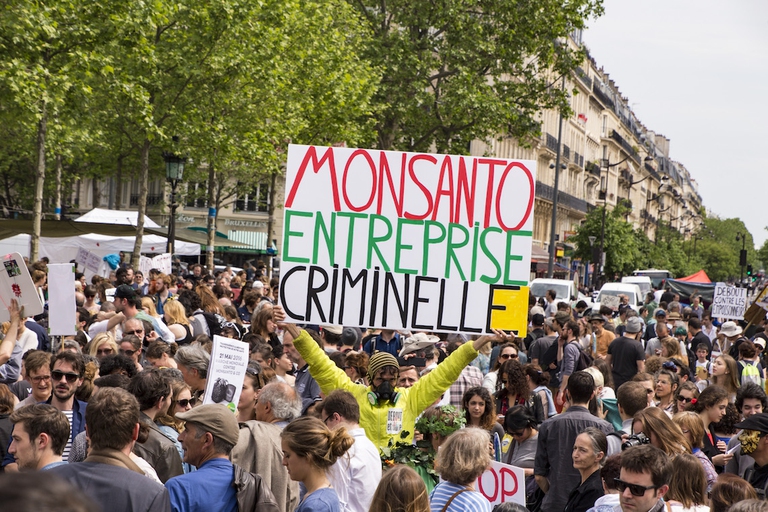
A report by Ember explains that in 2025 electricity generation from renewables (solar, wind and hydropower) surpassed that from fossil fuel sources.
A new US report warns of the presence of glyphosate in honey. The Roundup herbicide was found in all the samples analysed by the FDA.
Residues of glyphosate – the main ingredient of Monsanto’s famous Roundup weed killer – were found in all of the samples of honey the Food and Drug Administration has tested in a recent examination.
In some cases, according to the Huffington Post USA “honey showed residue levels double the limit allowed in the European Union”. The documents compiled by the FDA reveal also that the herbicide marketed by the American multinational company was found in some samples of soybean and wheat.
The study of the FDA is even more alarming considering that the World Health Organisation has rated glyphosate as “possibly carcinogenic to humans”. For this reason, many environmental and consumer protection associations have long been asking associations to conduct this study.
This is the first time the FDA has tested glyphosate on American food products, even though it examined a number of pesticides in past years. The only tests on glyphosate have been conducted in the United States by private companies, NGOs and voluntary scientists.
The piece of news on glyphosate in honey has been announced exactly in the period when the US Environmental Protection Agency (EPA) is completing its study on the impact of this substance on human health in order to decide whether to limit its use or not. A public meeting has been scheduled between 18 and 21 October in Washington to take stock of EPA’s work. This event could spark protests and debates: the report was estimated to be published in 2015, while now, according to the association, it will be released in spring 2017.
Siamo anche su WhatsApp. Segui il canale ufficiale LifeGate per restare aggiornata, aggiornato sulle ultime notizie e sulle nostre attività.
![]()
Quest'opera è distribuita con Licenza Creative Commons Attribuzione - Non commerciale - Non opere derivate 4.0 Internazionale.
A report by Ember explains that in 2025 electricity generation from renewables (solar, wind and hydropower) surpassed that from fossil fuel sources.
The Tyler Prize, considered the “Nobel Prize for the Environment,” has been awarded to Toby Kiers, an American biologist working in Amsterdam.
Belgium is one of the countries most exposed to climate change. Dune–dikes are a solution to curb sea-level rise.
Between October 2024 and September 2025, the average temperature in the Arctic was 1.6 degrees Celsius higher than during the 1991–2020 period.
Undeclared conflicts of interest, paid authors, lack of transparency: one of the most cited studies on glyphosate, published in 2000, has been retracted.
The Copernicus service has released data for the first eleven months of 2025: global warming is set to come close to last year’s record.
The European Council and Parliament have reached an agreement on the European Commission’s proposal to deregulate new GMOs. But farming, organic agriculture, and environmental organizations are calling for it to be stopped.
The world’s second-largest producer has taken a historic decision. However, farms will have until 2034 to shut down.
A Greenpeace report denounces Russia’s political and economic model: a nexus of extractivism, authoritarianism and war that is destroying the environment, with serious repercussions for the global ecosystem.









